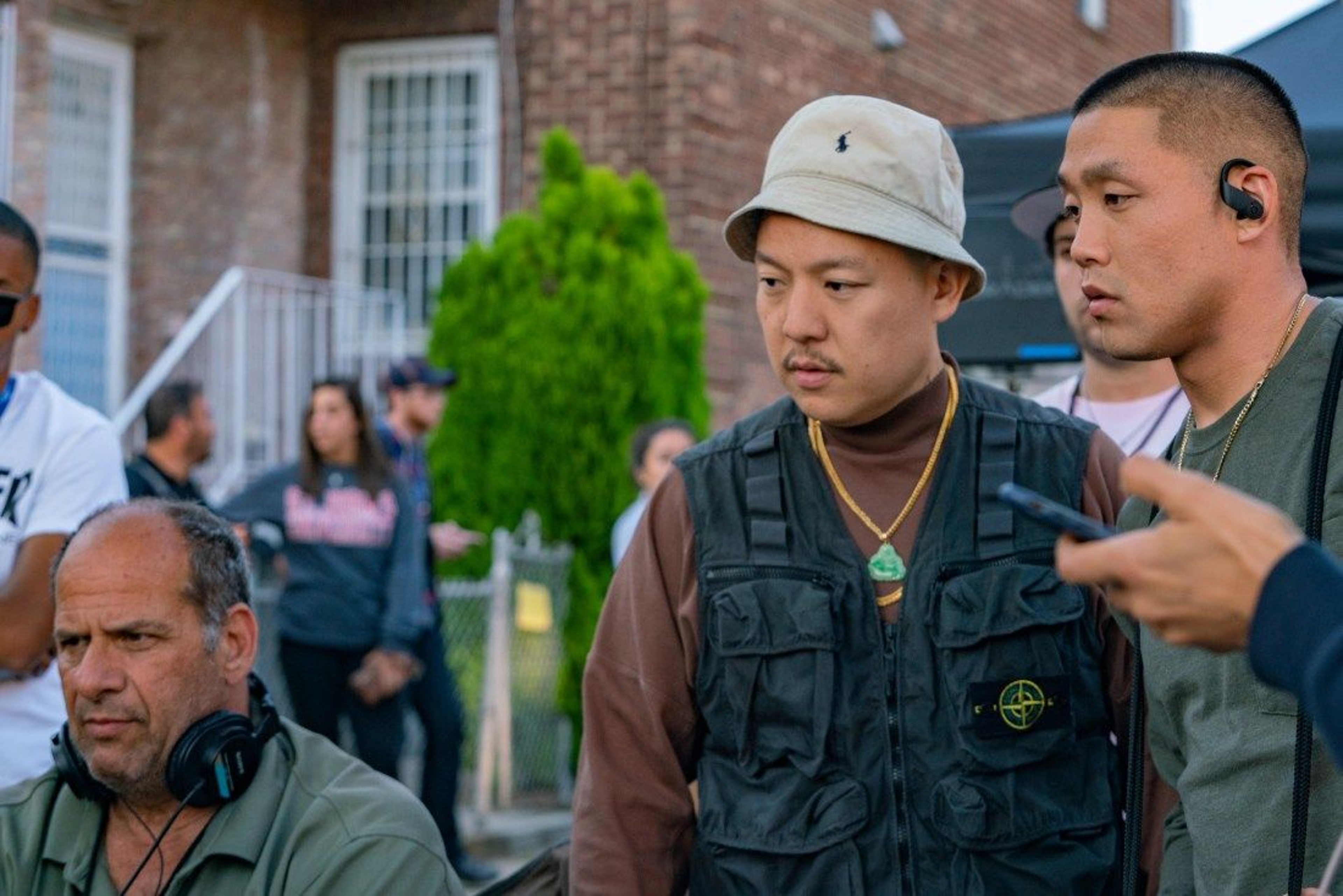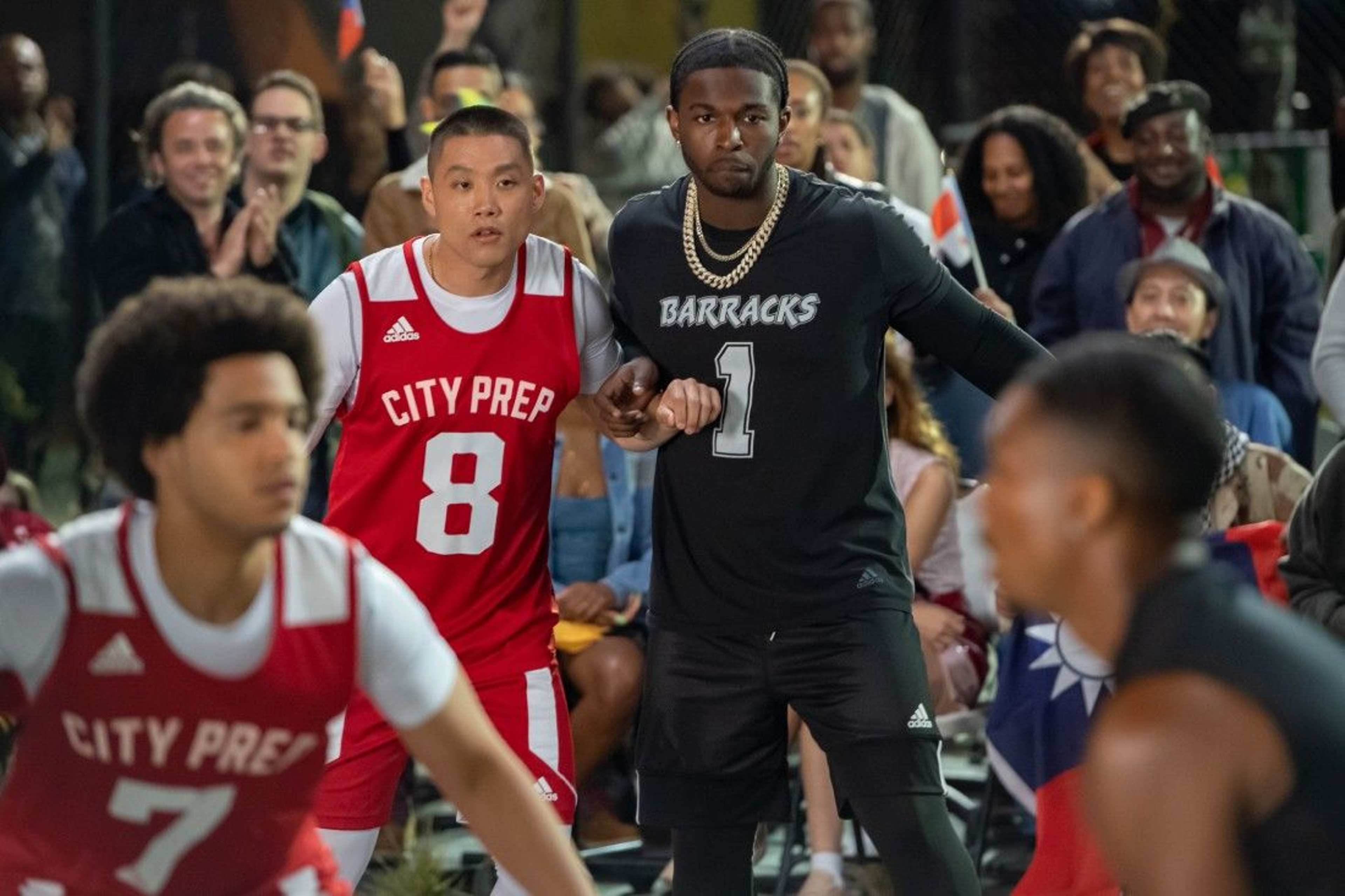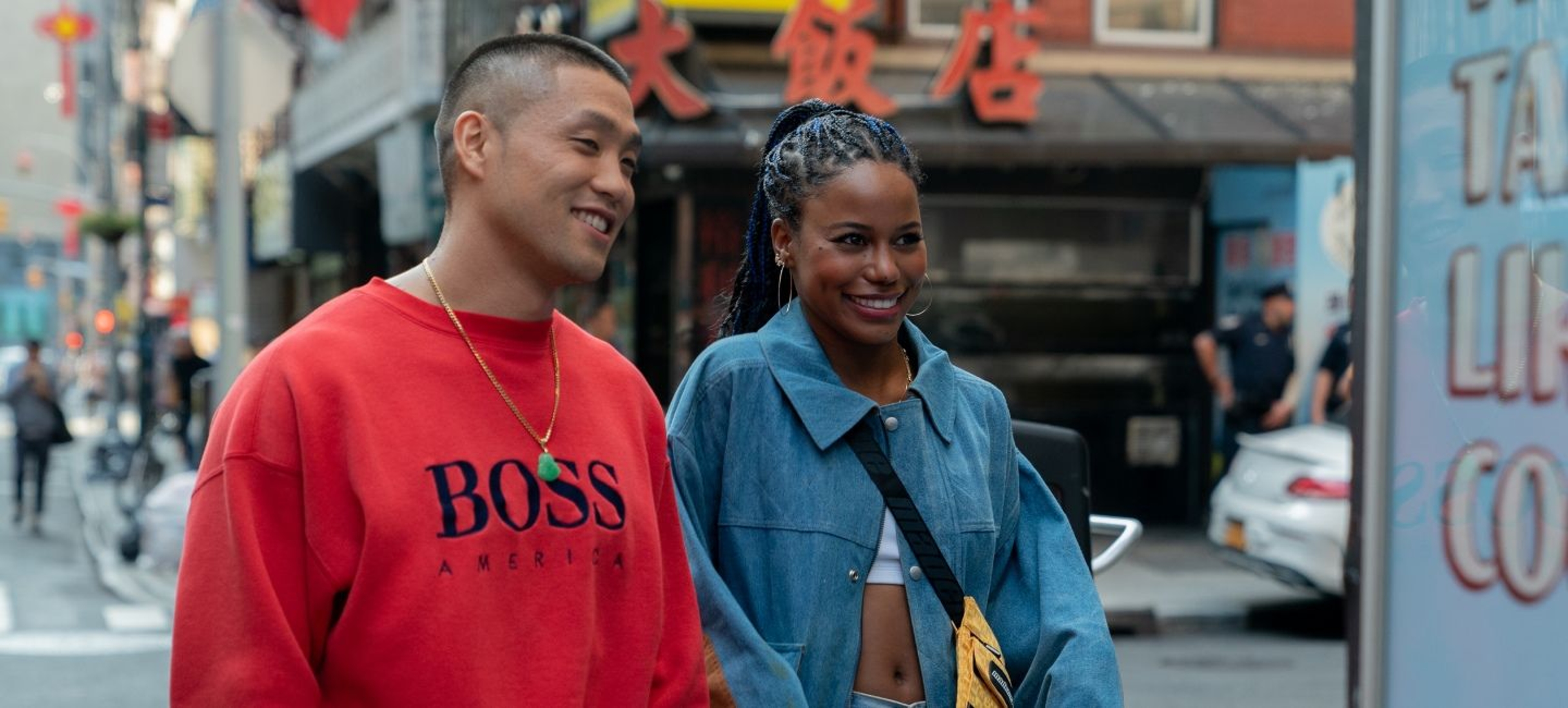In Boogie, writer/director Eddie Huang highlights the trials and triumphs of a Chinese American teenager, Alfred “Boogie” Chin (Taylor Takahashi), growing up in Queens. On the one hand, Boogie seeks to honor his ancestors by allowing his parents (Pamelyn Chee and Perry Yung) to manage his budding basketball career. On the other hand, as an American kid, Boogie often just wants to be with his girlfriend, Eleanor (Taylour Paige), and hang out with his best bud, Richie (Jorge Lendeborg Jr.). In mixing up the coming-of-age and sports film genres with a different cast of characters, Huang not only redefines what it means to be American, but what being Asian American today means as well. To celebrate Focus Features' 20th year anniversary as well as Asian American and Pacific Islander (AAPI) Heritage Month, we are showcasing this May the innovative work of AAPI filmmakers, such as Eddie Huang’s debut feature film Boogie.
The official trailer for Boogie

Filmmaker Eddie Huang and star Taylor Takahashi on the set of Boogie
While Eddie Huang has had many careers (corporate lawyer, chef, restaurateur, writer, TV innovator, and food personality), he was drawn to filmmaking ever since he watched a video of Good Will Hunting at 15. “This was a defining moment because it dawned on me that you could talk about this stuff," Huang explains. "I decided everything I would do going forward would address aspects of my own family situation.” Boogie does not exactly depict Huang’s life, but many elements of it—his love of basketball, his complex relationship with his mother, and his sense of how Chinese American identity intersects with other cultures—shine through. “It's not just an Asian American film," Huang explains. "It's also as much, if not more, Black American culture, downtown New York culture, street culture, hip-hop culture, all of those things. It's a very intersectional film."
Although the film’s star, Taylor Takahashi, grew up in a Japanese American home without the same immigrant issues faced by Huang or Boogie, he completely relates to the story. “I’m a fourth-generation Asian American and Eddie is first-generation, and while we have different trajectories, Boogie highlights the dynamic of what an Asian American experience can be in this country,” Takahashi notes. “The movie brings together a lot of different people and gives voice to those who normally wouldn’t have a voice.” Huang's sense of how the Chinese American experience incorporates as well the communities it intersects is what makes the story relatable to so many. The Hollywood Reporter observes, “Boogie’s English-fluent, somewhat-assimilated parents (and his uncle Jackie, played by Huang himself in a cameo) give voice to a longer sense of Asian-American history than we usually get in similar films.”

Taylor Takahashi and Pop Smoke in Boogie
What makes Boogie “something chewier, deeper and personal” than the typical hoops film, as the Rolling Stone headline notes, is its understanding of Asian American identity as being both specific to itself and part of the world around it. The only real community not part of the story is the dominant one. "As an Asian-American movie in which the main axis of cross-reference is Black culture, Huang’s film…addresses the frequent incapability of the white mainstream establishment to imagine a narrative that does not contain their perspective," explains Rolling Stone. In so doing, the Los Angeles Times highlights, “Boogie tries to appreciate its own contradictions, and also to complicate the audience’s expectations” by refusing to reduce anyone to simply their cultural identity. As a filmmaker, Huang makes this perspective part of his aesthetic. “More than even repping for Asian-Americans or, like, fighting for solidarity between Latino, Black, Asian and gay communities, it can be all these things,” explains Huang, “I care about solidarity and representation, but more than that, I really want people to have the confidence to be in their own bodies, be in their emotions and be honest."
